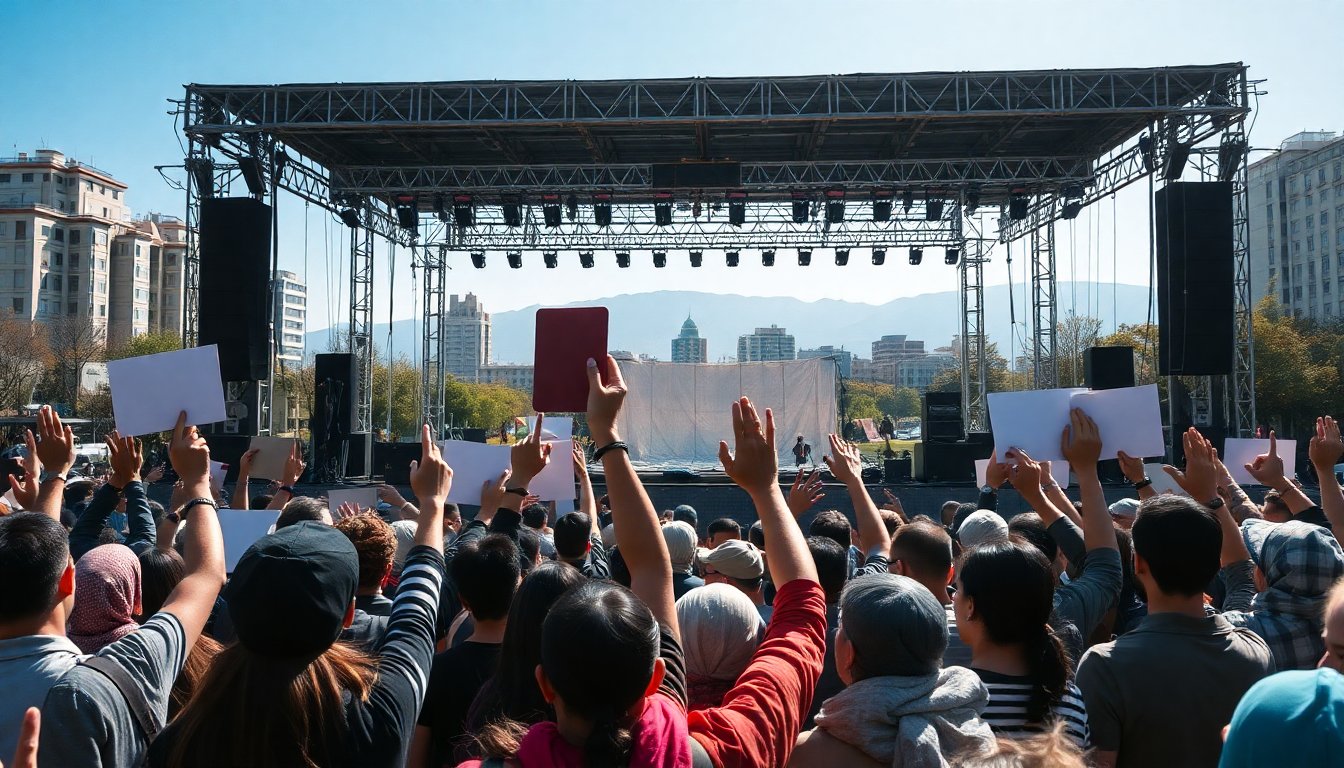Table of Contents
Cancellation of Concert Sparks Political and Social Reactions in Iran
The recent cancellation of a highly anticipated concert in Tehran has sparked significant political and social interpretations, highlighting the complex dynamics within Iranian society. The concert, featuring renowned Iranian singer Homayoun Shajarian, was intended to symbolize national unity following a brief conflict with Israel. However, just days before the event, authorities announced its cancellation, citing logistical challenges and safety concerns, which raised questions about government coordination and intentions.
The Backdrop of the Event
Homayoun Shajarian, a prominent figure in Iranian music and son of the legendary Mohammad Reza Shajarian, was set to perform at Tehran’s iconic Azadi Tower. This venue is often associated with state-organized events. As anticipation mounted, Shajarian revealed in an online statement that essential equipment and instruments for his 30-member orchestra were barred from entering the venue. This announcement came just two days before the planned concert, resulting in widespread disappointment among fans.
In the lead-up to the concert, workers from Tehran Municipality were observed welding shut gates surrounding the square, obstructing any preparations for the performance. This location had previously been decorated for other significant state events, underscoring its importance in Tehran’s political and cultural landscape. As events unfolded, critics began expressing concerns over the government’s organizational shortcomings. Alireza Zakani, the mayor of Tehran, suggested that the concert should have taken place in a stadium instead.
Political Ramifications and Societal Divisions
The cancellation has disappointed fans and underscored political divides within Iranian society. Many viewed the concert as a potential source of joy amidst ongoing economic challenges, including rampant inflation and power shortages. Conversely, some critics interpreted the event as a governmental strategy to rally nationalist sentiment and distract from pressing domestic issues, such as the devaluation of the national currency.
These differing perspectives reflect broader societal tensions, intensified by external pressures from sanctions imposed by Western nations. What was intended as a celebration became a focal point for political discourse, with dissenting voices from both within Iran and the diaspora voicing their discontent. Hardline members of parliament suggested that the government’s decision to cancel the concert was a calculated attempt to divert attention from critical economic crises.
The Aftermath and Future Implications
In the aftermath of the cancellation, the Iranian culture ministry expressed regret over the missed opportunity for unity, emphasizing the importance of such events in fostering national spirit. Shajarian, in a detailed online post, sought to downplay the political implications of the concert, asserting that his intentions were solely to spread joy and not to distract from governmental shortcomings.
Despite the concert’s failure, the Iranian state continues to invoke themes of unity and nationalism, leveraging historical narratives and cultural symbols to reinforce its position. Recent months have seen an increase in state-sponsored cultural initiatives aimed at bolstering national pride amid external pressures. The ongoing discussion surrounding the concert reflects a broader struggle for identity and resilience in the face of adversity.
As the situation continues to evolve, observers are keenly focused on how these tensions will unfold, particularly with the potential reinstatement of international sanctions and the looming threat of military action from Israel and the United States. The resilience of Iranian society, combined with its rich cultural heritage, will undoubtedly play a crucial role in shaping the nation’s future landscape.


